Clutha inquiry told how helicopter crash victims died
- Published
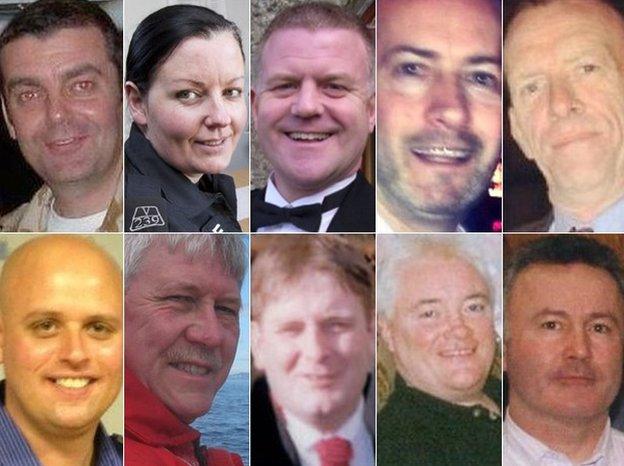
(Top: L to R) David Traill, PC Kirsty Nelis, PC Tony Collins, Gary Arthur, Samuel McGhee (Bottom: L to R) Colin Gibson, Robert Jenkins, Mark O'Prey, John McGarrigle, Joe Cusker
The fatal accident inquiry into the Clutha helicopter crash in Glasgow has heard how each of the 10 victims died.
A joint minute was read on the third day of the fatal accident inquiry at Hampden Park which agreed the times and causes of death.
The Police Scotland helicopter crashed through the roof of The Clutha pub at about 22:22 on Friday 29 November 2013.
The tragedy claimed the lives of the pilot, his two crew and seven customers in the busy city centre bar.

Gary Arthur was carried from the bar through an open window

The court heard Gary Arthur, 48, from Paisley, Renfrewshire, had no pulse when he was found trapped in rubble by firefighters.
The sales adviser was carried to an open window and examined by a paramedic. Mr Arthur was pronounced dead at 22:50.
A post mortem examination the following day determined the cause of death was a head injury due to an aircraft crash.
Anthony Collins, 43, from Clarkston in East Renfrewshire, was a police constable on board the helicopter.
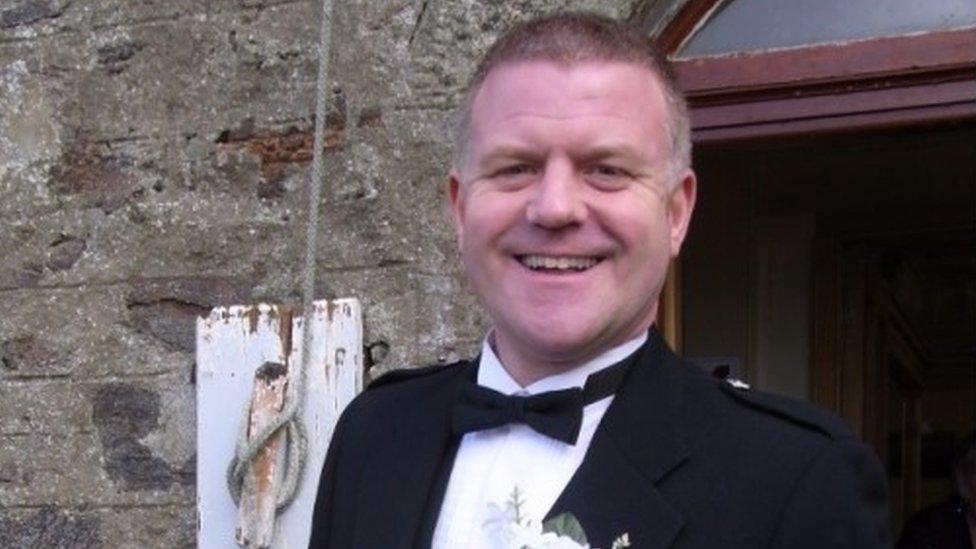
Anthony Collins was found in the rear passenger seat of the helicopter
The police air observer was found in the rear passenger seat of the helicopter which, according to the joint minute, "descended at a high rate onto the roof of the Clutha Vaults causing it to collapse".
PC Collins had no pulse when he was discovered by firefighters shortly after 23:00.
The court heard he was positioned behind the pilot and trapped within the wreckage.
PC Collins, who had 18 years' service, was formally pronounced dead at 10:49 the following day.
A post mortem examination found the cause of death was head, neck and chest injuries.
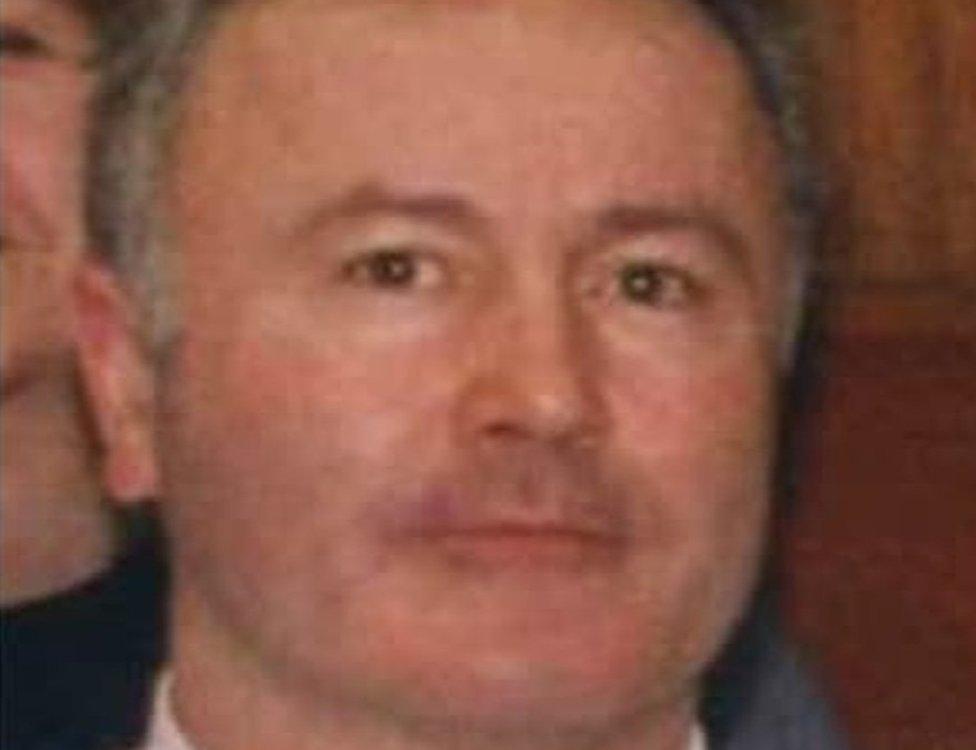
Joseph Cusker was found close to the entrance of the pub
Joseph Cusker, 59, from Cambuslang, South Lanarkshire, was still alive when he was found with multiple injuries close to the entrance of the pub by fellow customers.
The retired local authority housing manager was taken to the city's Royal Infirmary but he died at 11:25 on 12 December.
Mr Cusker's cause of death was recorded as multiple organ failure due to neck and chest injuries.
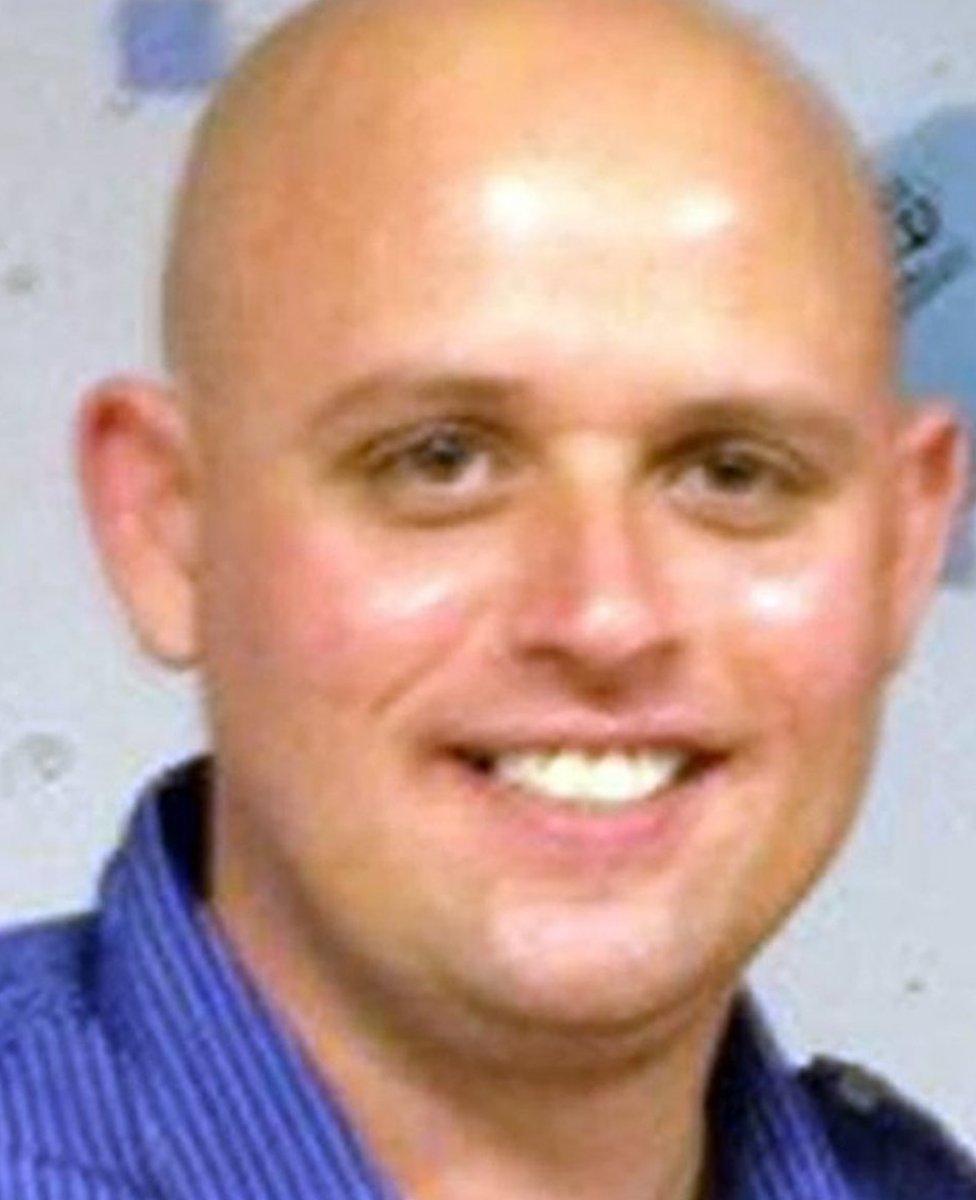
Colin Gibson was trapped in the debris

Colin Gibson, 33, was an immigration officer from Ayr.
He was trapped by rubble, debris and part of the helicopter when he was discovered by firefighters.
Mr Gibson was formally pronounced dead at 13:35 the following day and his cause of death was recorded as "traumatic asphyxia".
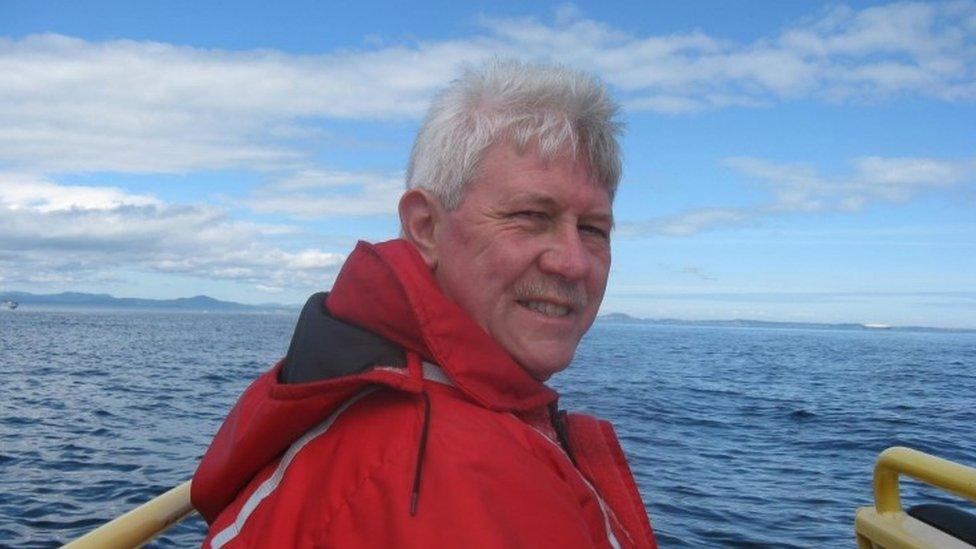
Robert Jenkins was trapped beneath the helicopter
Robert Jenkins, 61, from East Kilbride, was a gas company customer services adviser.
He was discovered in the Clutha by firefighters trapped in rubble and debris beneath the helicopter on 1 December, more than 36 hours after the crash.
Mr Jenkins was formally pronounced dead at 14:34 that day and the cause of death was recorded as a head injury.
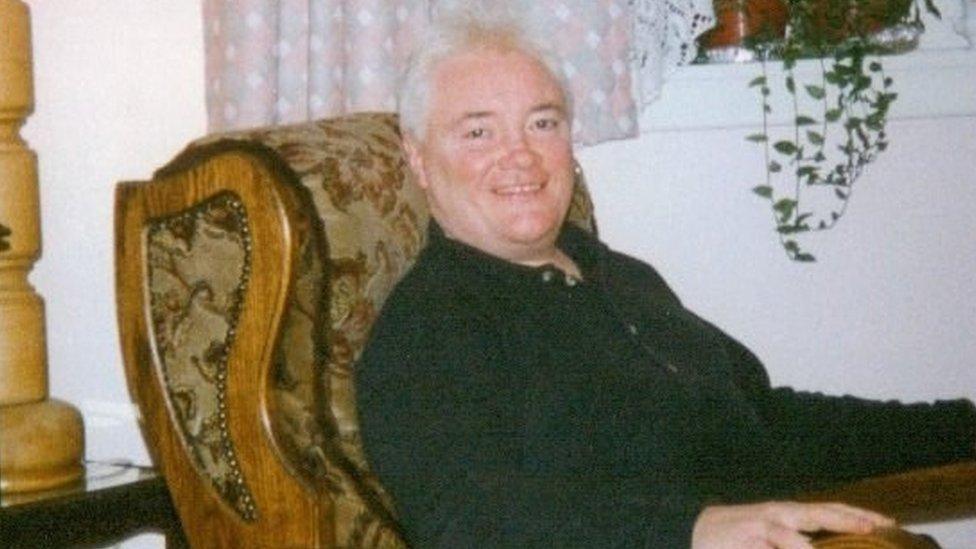
John McGarrigle was dead when paramedics examined him
John McGarrigle, 58, from Cumbernauld, North Lanarkshire, was a writer.
He had a faint pulse when firefighters found him trapped underneath a large amount of debris and rubble, near the left front entrance door of the pub.
Mr McGarrigle was found to be unconscious with a faint pulse but there was no sign of life when paramedics examined him.
He was pronounced dead at 12:49 the following day and the cause of death was later found to be chest injuries.
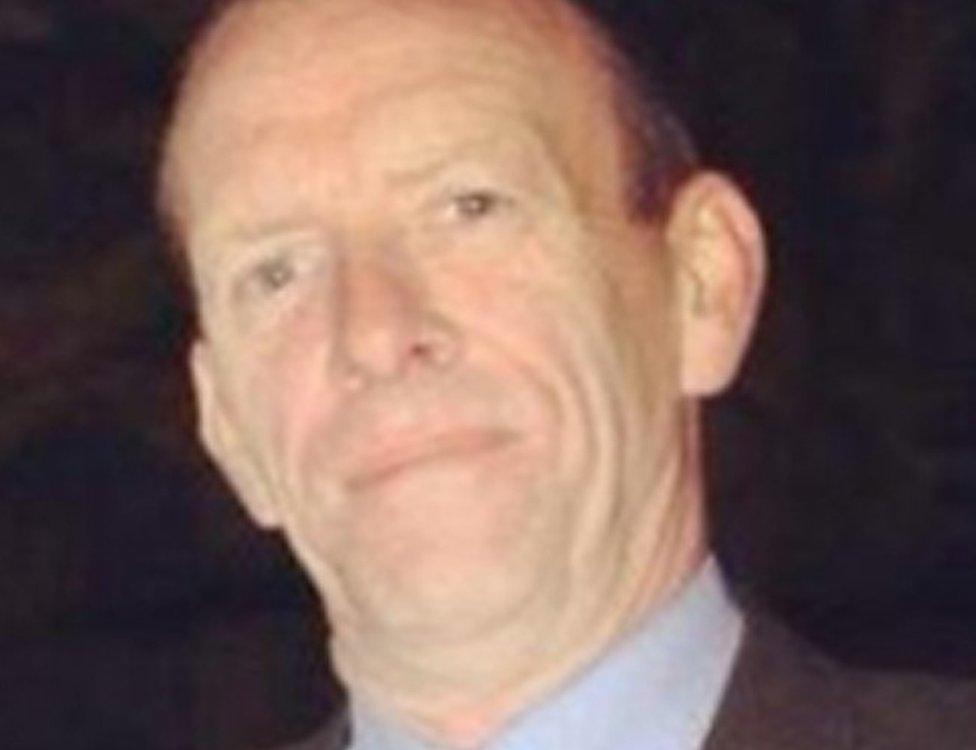
Samuel McGhee was found alive but was trapped beneath debris and rubble
Samuel McGhee, 56, was a car wash maintenance man from Glasgow.
He was found trapped in the pub by firefighters.
Mr McGhee had a faint pulse but could not be freed due to the mass and weight of the debris. When paramedics examined him a short time later he had no pulse.
He was formally pronounced dead at 10:22 the following day and the cause of death was recorded as chest injuries.
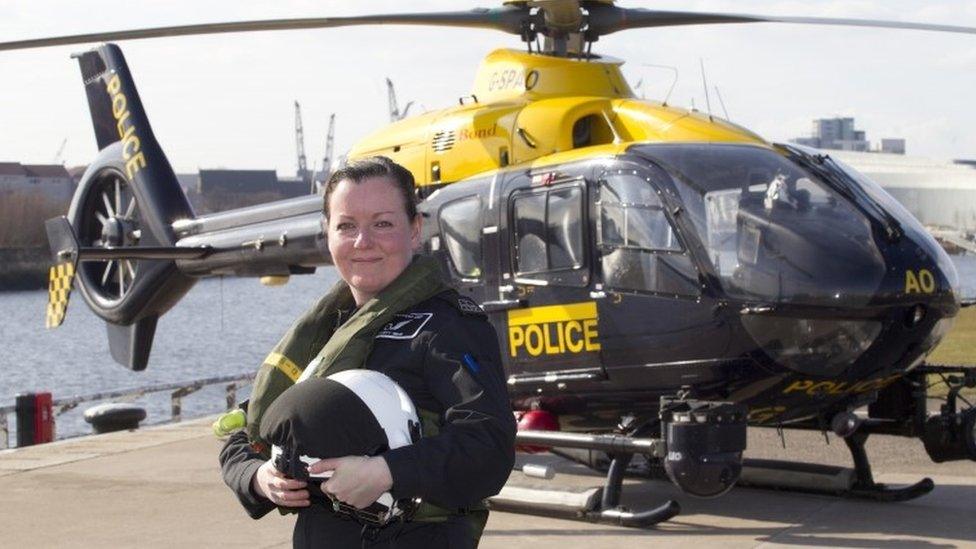
PC Kirsty Nelis was found in the front passenger seat of the helicopter
Kirsty Nelis, a police air observer from Inverkip in Inverclyde, was in the front passenger seat of the helicopter.
The 36-year-old police constable, who had 13 years' service, was discovered strapped in the front seat of the helicopter.
The court heard she was trapped within the wreckage and instrumentation.
PC Nelis was pronounced dead at 10:46 the following day and the cause of death was recorded as head, chest and neck injuries.
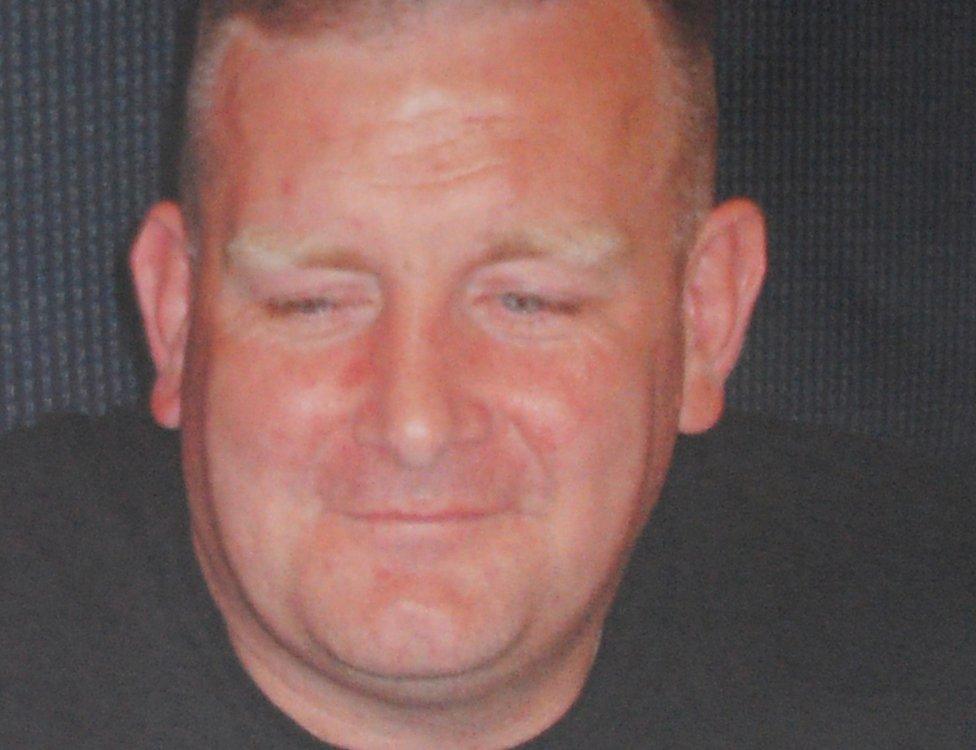
Mark O'Prey was trapped in the rubble from the crash
Mark O'Prey, 44, was found trapped by rubble from the waist down.
The window cleaner, from East Kilbride, was moving his head and mumbling but his breathing was shallow.
He was given an oxygen mask and fitted with an airway but by 01:00 on 30 November there were no signs of life.
Mr O'Prey was formally pronounced dead at 12:57 and the cause of death was recorded as head, chest and neck injuries.
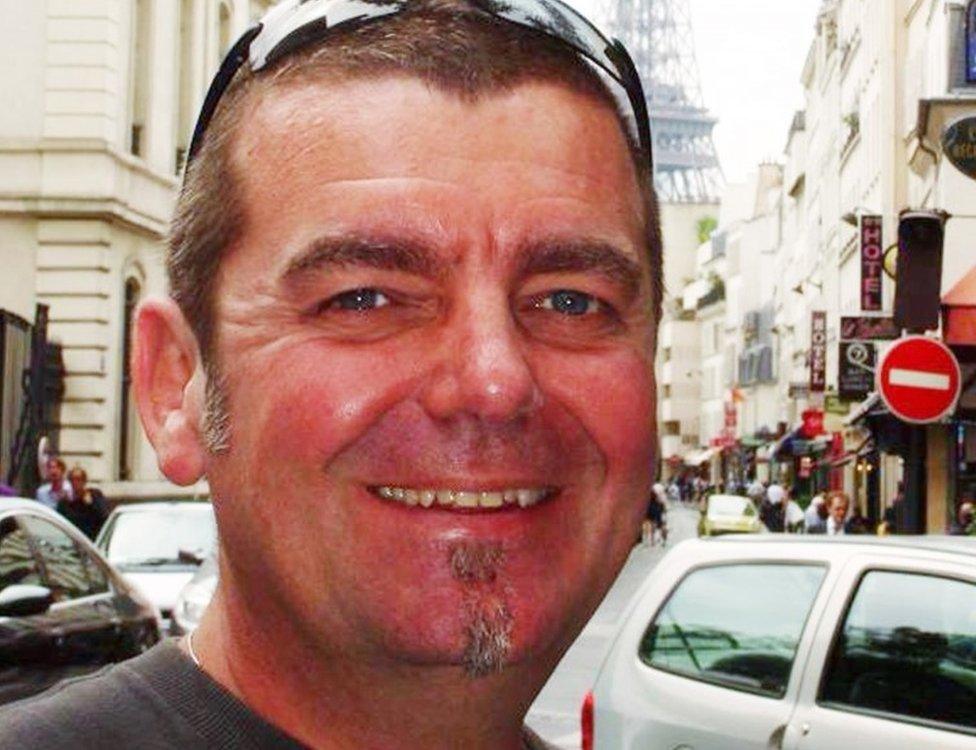
Pilot David Traill was found dead in the front seat of the helicopter
David Traill, 51, was the pilot of the helicopter and employed by Bond Air Services.
Shortly after 23:00 he was found in the front-right seat by firefighters compressed by wreckage and debris. He had no pulse.
Mr Traill was pronounced dead at 10:35 the following day and the cause of death was found to be head, neck and chest injuries.
The court heard samples taken for a toxicology report found negative results for alcohol or drugs.
This was also the case for PC Collins and PC Nelis.
'Dangerously misled'
The inquiry later heard a suggestion that Mr Traill could have been "dangerously misled" by an error in a maintenance manual.
Marcus Cook, senior inspector at the Air Accidents Investigation Branch (AAIB) was questioned by Donald Findlay QC, representing the family of victim Robert Jenkins.
Mr Findlay asked the witness if the pilot would have three to four minutes from one engine on the helicopter flaming out due to fuel shortage and the second doing so.
Mr Cook said it would not be minutes, but kilograms of fuel.
He said: "The maintenance manual is incorrect. It would be three to four kilograms - hence about a minute."
Mr Cook said he did not know how the mistake occurred and the maintenance manual had since been changed.
Mr Findlay asked: "If the pilot Captain Traill knew about the gap and understood it to be three or four minutes, he had been badly misled?
The witness replied: "If he knew".
"And dangerously misled," Mr Findlay added.
Mr Cook said: "Your words."
Mr Findlay asked: "Is there anything wrong with my words?"
"No," Mr Cook replied.

Rescuers lift the police helicopter wreckage from the roof of The Clutha
The witness said it was probable but "maybe unlikely" that the pilot was aware of the manual as it was for maintenance.
The court also heard there would have been 32 seconds between the two engines flaming out.
When the second engine flamed out, at a height of 500 to 600ft, the pilot would then have had less than 10 seconds to react.
Mr Cook said there were indications the pilot attempted to have the helicopter auto-rotate to land with some degree of safety, but this did not work.
The court heard the first low fuel light, of five fuel warnings, would have come on when the pilot was around Bothwell, which is about 11 road miles from Glasgow city centre.
At that time he would have been expected to land within 10 minutes.
Crash mystery
But the inquiry heard the AAIB report indicates the helicopter then went to Uddingston and Bargeddie.
Mr Findlay asked: "Why would anyone with the warnings and the knowledge of the amount of fuel on board then carry out an operation at Uddingston, let alone going on to Bargeddie, in that situation?
Mr Cook said: "I've absolutely no idea."
Mr Findlay asked Mr Cook how the crash happened.
He replied: "Unfortunately we could not come to a positive conclusion apart from not landing in 10 minutes."
Mr Cook said he assumed the pilot was heading back to the heliport in Glasgow.
The inquiry, which will resume next Wednesday, is expected to involve around three months of evidence spread over six calendar months.
- Published8 April 2019
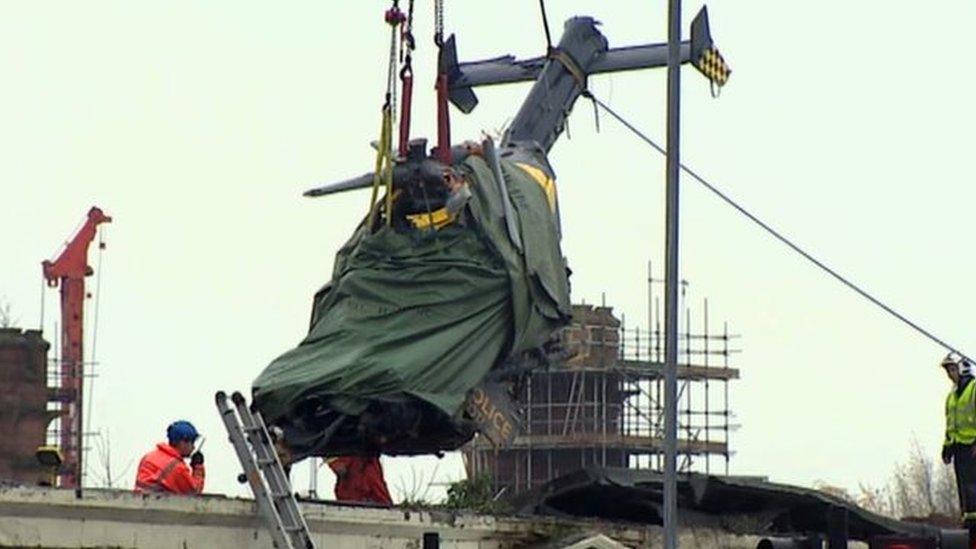
- Published9 April 2019
